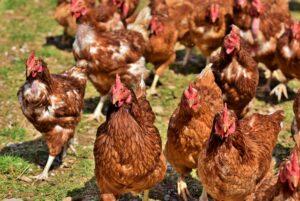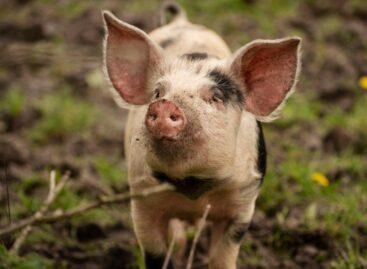Due to the bird flu epidemic, immediate EU measures are needed regarding Brazilian poultry meat imports
The bird flu epidemic is raging in Brazil, and the infection has already reached the country’s largest poultry-producing regions. Brazil is the world’s largest poultry exporter, from which hundreds of thousands of tons of meat arrive in the European Union every year. According to the National Chamber of Agriculture and the Poultry Product Council, immediate, EU-level measures are needed, as even a single infected meat product can pose a huge risk to EU producers, who have been fighting the epidemic so far.

(Photo: Pixabay)
The situation in Brazil is worrying, one of the world’s largest poultry meat exporters has also been overtaken by the bird flu epidemic. In the South American country, the H5N1 type of highly pathogenic avian influenza was recently identified in domesticated birds. Japan ordered an immediate embargo following the case at the end of June, which was discovered in a backyard farm in the town of Serra in the province of Espírito Santo. The Brazilians are currently contesting the move, as they say the Japanese authorities’ decision is not in line with World Organization for Animal Health (WOAH) guidelines, which apply only to cases reported in commercial production. At the same time, it is a fact that, according to the Brazilian Ministry, around fifty cases of high pathogenicity have been identified throughout the country (in the states of Espírito Santo, Bahia, Paraná, Rio de Janeiro, Rio Grande do Sul, Santa Catarina and São Paulo), but these – according to the claim – are exclusively cases of wild birds .
Since the South American state has not yet received an official notification of this disease, it does not have so-called regionalization agreements either
The essence of the regionalization agreement is that the country affected by the epidemic can continue its export activities from all regions in which the infection has not appeared or the epidemic has already been eradicated. However, this procedure can only be legally carried out in the period following the elimination of the epidemic, which, together with the accreditation processes, can suspend Brazilian poultry meat exports for months or even years. Trade/animal health agreements of this type are of great importance, since in the event of an epidemic, the restrictions do not apply to the entire territory of the country, but to the areas affected by the outbreak. This also means that if the bird flu virus is identified in commercial poultry farming, the entire Brazilian export will fail.
Unlike Japan, the European Commission has not yet taken steps to restrict imports
At the same time, the situation demands immediate action at the European Union level, steps must be taken immediately to prevent infected Brazilian meat from entering the EU market. Food from an infected area is not only unfair to domestic and EU producers due to non-compliance with EU rules, but also poses a constant risk of infection, thereby jeopardizing production safety. In 2022, Brazil sold nearly 4.5 million tons of poultry meat abroad, of which the European Union bought about 200-250 thousand tons.
NAK
Related news
Two special food products will be placed under a new tariff heading
On 19 June 2025, the European Commission published new implementing…
Read more >African swine fever outbreak in Croatia continues to pose a risk
According to the information provided by the Croatian Ministry of…
Read more >Serious disease appears, national chief veterinarian orders increased control of cattle and buffalo imports
In recent weeks, the presence of the lumpy skin disease…
Read more >Related news
Temu has already targeted the European food market
The Chinese-rooted Temu is posing an increasingly serious threat to…
Read more >Irrigation water resources equivalent to one-third of Lake Balaton are available
Despite the extraordinary drought and lack of precipitation, we can…
Read more >Free irrigation water provided to farmers is a key element in the fight against drought
Free irrigation water provided to farmers is a key element…
Read more >






